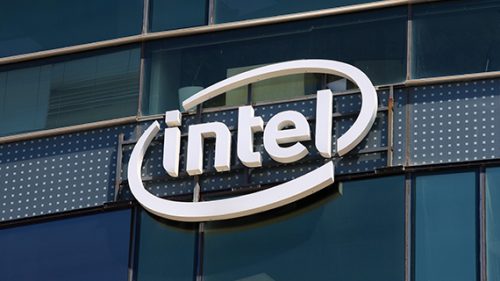
Intel has called off its $5.4 billion acquisition of Israeli contract chipmaker Tower Semiconductor following failed regulatory clearance from China. This decision has culminated in U.S.-listed shares of the Israeli company falling by 11% in premarket trading, and Intel Inc having to pay a termination fee of $353 million to Tower.
According to Reuters, the implications of tensions between the U.S. and China spilling over into corporate deal-making can not be overlooked, with Intel’s failed bid to buy Tower being yet another example after similar issues resulting in DuPont de Nemours Inc scrapping its $5.2 billion deal to buy electronics materials maker Rogers Corp in 2020.
Data from Intel suggest that the chipmaker was investing in its foundry business regardless of the agreement to acquire Tower, with forward-looking statements to this end including plans for its external foundry ambitions, internal foundry model, IDM 2.0 strategy, manufacturing and capacity expansion plans, and a customer value proposition.
Pat Gelsinger, CEO of Intel, reiterated the importance of foundry efforts in unlocking the company’s full potential and said, “Our foundry efforts are critical to unlocking the full potential of IDM 2.0, and we continue to drive forward on all facets of our strategy.”
Read more: Intel Partners Up With Arm On Chip Manufacturing
Furthermore, Stuart Pann, Senior Vice President and General Manager of Intel Foundry Services (IFS), mentioned that IFS had made significant progress toward becoming the second-largest global external foundry by the end of the decade with a more than 300% year-over-year revenue increase in the second quarter of 2023. Recently, Intel also entered into agreements with Synopsys, Arm, and MediaTek to develop and use IFS’ advanced process technologies. Pann added, “Since its launch in 2021, Intel Foundry Services has gained traction with customers and partners, and we have made significant advancements toward our goal of becoming the second-largest global external foundry by the end of the decade.”
Investors had given up hope on the completion of the deal between Intel and Tower due to Intel’s prior announcement that it agreed to spend $25 billion on a new factory in Israel, the largest-ever international investment in the country. Intel also received a boost in the form of being awarded the first phase of the U.S. Department of Defense’s Rapid Assured Microelectronics Prototypes – Commercial (RAMP-C) program.
Anirban Sen, Editor in Charge for U.S. M&A at Reuters in New York, noted that Intel’s scrap of the original $5.4 billion deal to buy Tower is “the latest sign of the U.S.-China rift spurring a wave of mergers, acquisitions, and investments that have been put on ice.”
Whilst the agreement between Intel and Tower hasn’t gone through, the chipmaker’s forward-looking statements make it clear that Intel is still intent on advancing its plans to create world-class system foundry as part of its IDM 2.0 strategy. Although they have been unable to acquire Tower, Intel plans to continue to optimize and leverage their external foundry customers and partners.
Source: Reuters
Featured News
Big Tech Braces for Potential Changes Under a Second Trump Presidency
Nov 6, 2024 by
CPI
Trump’s Potential Shift in US Antitrust Policy Raises Questions for Big Tech and Mergers
Nov 6, 2024 by
CPI
EU Set to Fine Apple in First Major Enforcement of Digital Markets Act
Nov 5, 2024 by
CPI
Six Indicted in Federal Bid-Rigging Schemes Involving Government IT Contracts
Nov 5, 2024 by
CPI
Ireland Secures First €3 Billion Apple Tax Payment, Boosting Exchequer Funds
Nov 5, 2024 by
CPI
Antitrust Mix by CPI
Antitrust Chronicle® – Remedies Revisited
Oct 30, 2024 by
CPI
Fixing the Fix: Updating Policy on Merger Remedies
Oct 30, 2024 by
CPI
Methodology Matters: The 2017 FTC Remedies Study
Oct 30, 2024 by
CPI
U.S. v. AT&T: Five Lessons for Vertical Merger Enforcement
Oct 30, 2024 by
CPI
The Search for Antitrust Remedies in Tech Leads Beyond Antitrust
Oct 30, 2024 by
CPI